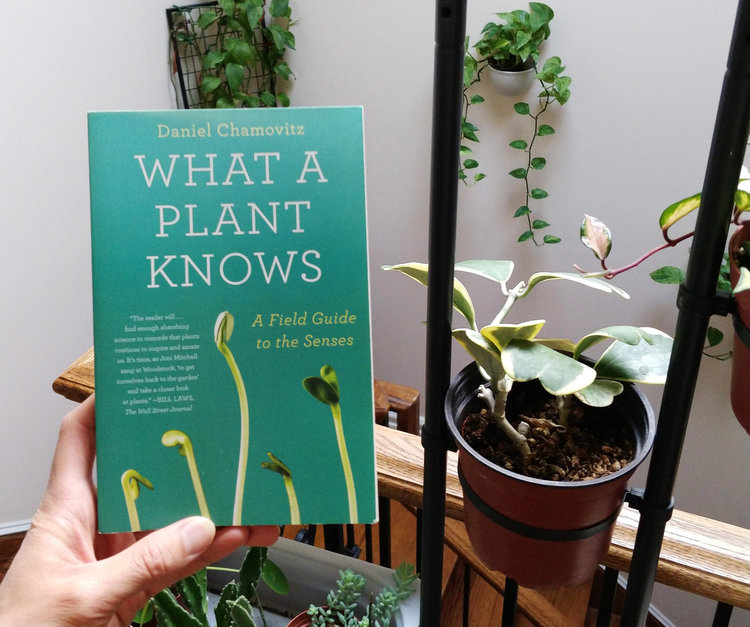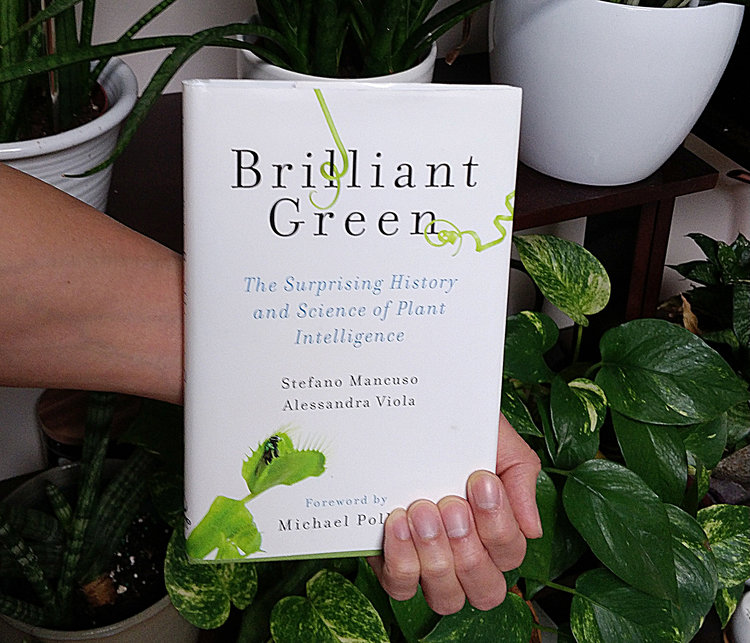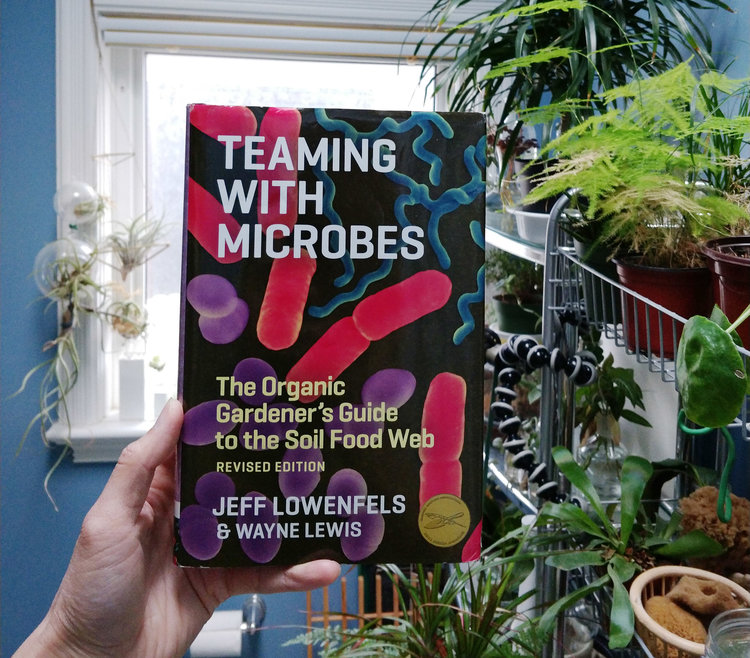If you follow me on Instagram, you’re well aware that I promote the appreciation of plant life over simple plant aesthetics. I think there is a greater joy in plant ownership if you have an awareness of how plants work and a healthy dose of acceptance that plants are living things that grow and die. For the plant life appreciation piece, I’ve assembled a few books that helped me with deepening that appreciation. Most of these aren’t specifically about house plant care but I think the whole point of this is to expand your knowledge, to go beyond mundane “tips and tricks”.
*Disclaimer* – I’m trying this affiliate links thing so when you buy from the links below, a portion of the sale goes to House Plant Journal, which strives towards continually creating great content for plant parents. I, myself, purchased all the titles mentioned except for Teaming with Microbes – it was a gift from the publisher, Timber Press – they publish many scientifically and horticulturally sound books on gardening.

What a Plant Knows: A Field Guide to the Senses
This is a captivating summary of many important scientific findings about plants. The results of many of these experiements are presented in the perspective of “plant senses” to various stimuli.
Personal revelation:
I’m now classifying “upside down planters” as gimmicky as painted succulents – plants definitely know up from down! In my own experience, I tried planting some small tomato seedlings in an upside down planter. Only the largest survived – the younger seedlings must have still been in plant childhood because their stems curved and attempted to bend back nearly 180 degrees towards the sky. They ineviably ran into the base of the planter and died soon after. Perhaps it is only a plant in its mature form that can TOLERATE being planted upside down.

Brilliant Green: The Surprising History and Science of Plant Intelligence
I have to thank my friend Olena @theoperatingsystem for recommending this one to me. Brilliant Green was a bit more philosophical in challenging us humans to break the “animal bias”, where scientific discoveries based on animals are made to seem more relevant than the equivalent discovery made from plant studies. The authors argue that all organisms had to adapt to survive – the way an animal has adapted shouldn’t be considered “more advanced” but just different compared to a plant’s way of life.

Teaming with Microbes: The Organic Gardener’s Guide to the Soil Food Web, Revised Edition
Indoor gardeners are probably the least aware of what’s going on inside soil. Teaming with Microbes brings light to the importance of the “soil food web” and how plant life is intricately linked to soil life. Plants exude sugary substances to attract the good bacteria, who in turn attract other players in the soil food web (the term “food chain” is too limiting a term as it implies a linear relationship between predators and prey).
Personal revelation: the authors state that soil life creates soil structure and mention that all the life forms, from the microscopic to worms to birds and other animals, together continually create pathways for air and water. This is what helped me confirm that manually aerating soil is a critical aspect of house plant care in the absence of worms and larger animals.
Okay, here’s ONE very influential book specifically on house plant care:How NOT to Kill Your Houseplants: The Foolproof Guide to Lush, Healthy Plants
It has just a few black and white photos and is mostly text but that’s what makes it so engaging. It’s as though a very experienced friend were telling me clearly what works and what doesn’t – a much needed voice in the world of house plant care amidst all the vague “instructions”. I would attribute a lot of my confidence with house plants to the teachings in this book!
As my own book on house plant care is still in the works, I hope you’ll find a few (or all) of these helpful in deepening your knowledge and appreciation for plant life, which will ultimately make the hobby of plant ownership more rewarding. Happy reading!